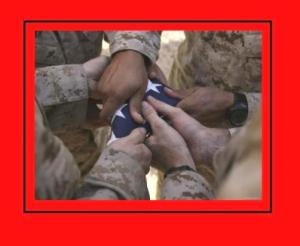Sacrifice – An Introduction
Many religious ceremonies have included sacrifice, the act of giving up something of value and offering it to a deity. Worshipers may make a sacrifice to win the favor of the deity, to give thanks, or to maintain a good relationship with the higher authority. Myths from around the world contain many examples of sacrifices in which animals, humans, and even gods shed blood or die. Sometimes the sacrifice is linked with creation or with the continuation of life on earth. People also make offerings of fruit or grain collected during a harvest.
In modern times, sacrifice has acquired a popular and frequently secular use to describe some sort of renunciation or giving up of something valuable in order that something more valuable might be obtained; e.g., parents make sacrifices for their children or sacrifices a limb for one’s country.
Sacrifice Today
The practice of sacrifice is changing, we can now see this act as giving more, without reward, and enjoying a good feeling in return. Ultimately many see sacrifice as safety and security for all – not for a few – that increases participation in the community. Consider Kindista.org – a gratitude-powered community with a spiritual engine as part of a new paradigm of giving, sharing and sacrifice.
Sacrifice in Permaculture & Transition
Permaculture Ethics teach Care for the Earth; Care for People; and Return the Surplus– an enlightened form of sacrifice that acknowledges the needs of others and challenges the entrenched inequities in our systems.
In my view, permaculture and Transition support giving up short-term gains as an individual’s for the benefit of preserving Nature and the local community. Are we going backwards in time in any respect with the A-Frame and scythe? To design by hand with simple tools in weeks what it takes bulldozers and monster trucks to do in days. Do we see this approach or life style as a new ethic?
But is food forest construction by hand “sacrifice”?
Sacrificing can also be seen as a pro-active, militant act that mandates that we now fight to “leave the oil in the ground.” We can choose to sacrifice our lifestyles, water consumption and energy habits for our children’s children’s benefit.
In localism, sacrifice can enlarge Zone 0 to include our entire neighborhood and community on a spiritual level, sacrificing our home-bound comfort zone for the street fair, community market or protest.
Two values that underpin the Transition model and the new sacrifice include:
Inclusion – “Everyone must be included in the transition process. It will take the collective genius of us all to build our future community.” It is the collective not the individual that needs to sacrifice for and build our new green future.
Resilience – “The building of community resilience is central to the Transition movement. With added resilience, the community can weather the problems that arise as we move quickly along the path to lower energy use.” As more individuals sacrifice for their children and community, resilience is strengthened and a more sustainable model is possible.
Sacrifice & New Mythology
Sacrifice is a mythic act with spiritual rewards that builds community resilience. This does not however warrant the Hero label or a protracted journey back to Self. The community as a whole can now be the Hero with multiple gardens, re-organizations and community rituals emerging.
Clearly offerings are not sacrifices nor are daily reflections or prayers or TV rituals. The new sacrifice is entwined with new symbols and myths. Sacrifice is a component in the new myth generation.
Sacrifice in Capitalism
Sacrifice in war – driven by Capitalism – is not true sacrifice, but self-delusion; sponsored a higher authority. One’s “sacrifice” on the battle field is much more about corporate greed and murder to gain foreign resources and political gain. True sacrifice is transparent as when you agree to fight and die for your land, exercising a choice; capitalism pits a real choice vs. conscription (no choice).
* * * * * * *
“In the name of the best within you, do not sacrifice this world to those who are its worst. In the name of the values that keep you alive, do not let your vision of man be distorted by the ugly, the cowardly, the mindless in those who have never achieved his title. Do not let your fire go out, spark by irreplaceable spark, in the hopeless swamps of the approximate, … Do not let the hero in your soul perish, in lonely frustration for the life you deserved, but have never been able to reach. Check your road and the nature of your battle. The world you desired can be won, it exists, it is real, it is possible, and it is yours.
- Ayn Rand

Replies
This Alliance is my at least fourth attempt to "bare myself" online (there were also a few interesting situations offline). It's not that I'm actively looking for situations where I would be discussing about sustainability and stuff like that. It just turns out one way or another that I end up a random discussion or social networking with reading and talking about sustainability and/or collective stupidity. The funny fact is that I am hardly someone who has any clear idea what to do with such a call to adventure. It's like someone (or something) is calling a wrong number. The only way for me to check someday my road and the nature of my battle (LOL!!!) will be from the end.
Hi Alec. The end? Hmmm.. I prefer a slow march in the middle. You didn't really respond to the sacrifice!